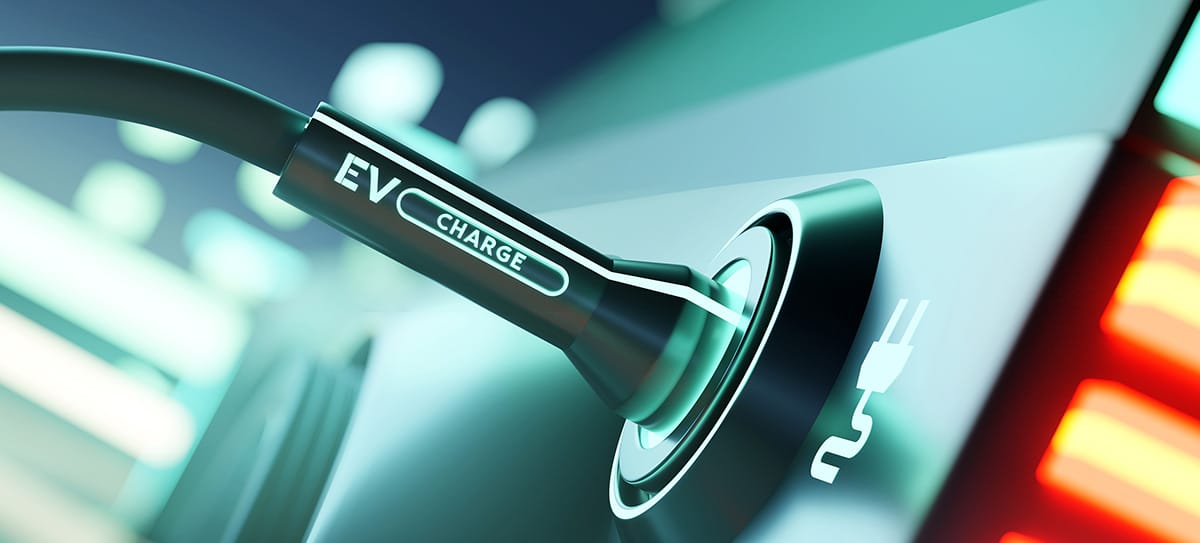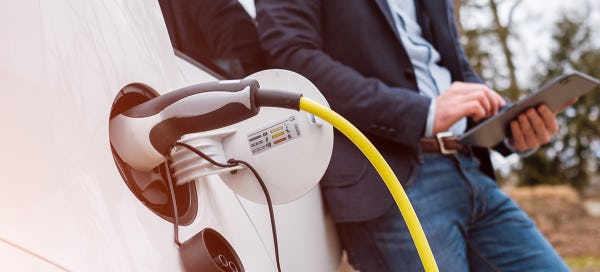When embarking on a road trip planning is crucial, especially when you're driving an electric car. Electric vehicles, or EVs, are gaining popularity for many good reasons, but costs are a concern.
When you're on a road trip in an EV, you may spend about $10 to $30 on charging. However, it's not that straightforward. Various factors can impact the final bill. In this blog, we'll explore the essential aspects of EV road trips, from finding charging spots to understanding the real costs, and how it compares with other fueling options.
Fluctuations in Fueling Prices
As you may already know, fueling prices significantly vary for EVs, especially compared to the fueling costs for ICE (internal combustion engine) cars. There are many reasons for this:
Electricity rates variation: The rates for commercial charging stations are two to three times higher than residential rates, and even within the same network, commercial charger rates can fluctuate by more than 50%. On the other hand, gasoline prices vary only up to 10%.
Charging speed: The amount of time you need to charge an EV will impact the final costs, and this time depends on the type of charger and battery charge level.
Pricing transparency: Commercial charger pricing is often not directly comparable because of various pricing schemes, which may include a combination of per kWh, per unit time, and per session costs. For this reason, there are significant fluctuations when calculating costs.
Types of charges
The next thing to bear in mind when calculating EV charging costs is the type of charger you use. Three types of chargers in the industry differ based on the charging speed:
Level 1 Chargers: The slowest type of all, requiring the whole 24 hours to complete the charging of your EV, level 1 chargers usually come for free with your EV and can be plugged into any electrical socket.
Level 2 Chargers: This particular type of EV charger translates up to 28 miles of range per hour. While these chargers cannot be plugged into your home's standard electrical sockets, you can usually find them at shopping centers. The costs will depend
Level 3 Chargers: The most powerful chargers, also known as direct current fast chargers (DCFC), can charge your EV really fast. In just one hour, a level 3 charger can charge your empty batter to almost full. Of course, this kind of service comes with a price. The price is between $0.40 to $0.60 per kWh and they are the most common at public stations.
How to Calculate the Costs of EV Charging
When calculating the costs of EV charging, you need to be familiar with several parameters. There’s a vehicle range (VR), the range per kWh (RPK), which is between 3 to 4 miles, and the cost per kWh (CPK). This is the formula:
Cost of Charging EV = (VR/RPK) x CPK
Let’s see an example. Suppose that you drive 1,500 miles every month. To calculate EV charging costs, start by dividing that number by 3 miles per kWh. The result is 500 kWh on a monthly basis. Now, you need to multiply this number by the rate per kWh. If you use a level 2 charger which costs range from $0.20 to $0.25 per kWh, your costs will be between $100 and $125 per month.
Costs of Charging an EV
Many electric vehicle drivers are still not sure if the cost of charging their EVs is more affordable than using a standard car with gasoline. Although the costs for EV charging costs differ based on whether you are charging your vehicle at home or on the road, the money you’ll spend is still cheaper than the cost of gasoline. This goes especially for Texas EV owners who can charge their vehicles at home, utilizing affordable Rhythm Energy’s Time-Of-Use rates. On the other hand, apartment residents face greater challenges, as they have to charge their EVs at the EV charging stations. However, even if you are forced to charge your EV at public stations, the price will still be in line with the most recent gasoline rates.
How much does it cost to charge your electric car at home?
The most affordable way to charge your electric vehicle is by having a home station. Regardless of all the costs that come with buying equipment and installing a home charging station, this is still the most cost-effective way to charge your EV.
When it comes to home charging station costs for equipment and installation, it’s safe to say that these costs are still lower or at least equal to annual standard maintenance for a gasoline-powered vehicle. Furthermore, the IRS offers a minimum tax credit for purchasing a new EV that is nearly double the value of acquiring and installing a new home charging system.
Another thing that impacts the costs of EVs charging at home is electricity rates. The electricity rates differ depending on the area you live in and the time of the year/day when you charge your electrical vehicle. This goes especially for residents of countries with deregulated electricity markets, where consumers benefit from TOU rates. For example, if you charge up to 90% of your EV during off-peak hours, which is during the night, you can save money and also make a substantial contribution to green energy initiatives.
All these factors, together with your EV model, determine the price you’ll pay to charge an EV. One of the things that you can do to save money on EV charging is to get a dedicated EV charging plan. If you are flexible with your charging, Rhythm Energy’s PowerShift EV 12 Plan might be the best option for you as it provides lower charging rates during off-peak hours.
How much does it cost to charge your electric car at a public EV station?
Another option to charge your EV is by using public charging stations. When it comes to pricing, charging stations determine their own pricing system, which primarily depends on a state and location. Basically, there are two methods of how charging station providers calculate their prices.
One method is to charge kilowatts per hour (kWh) at a price in cents. It’s pretty much the same method of charging as with home stations, but the price varies based on different charging networks. While some networks can charge you a fee every time you make a charging connection, others can offer a monthly subscription plan for their users, charging lower rates. Some networks can charge less during the night.
For example, if decide to use Tesla’s network of "Superchargers", the price will depend on several factors, including the state, location, time of the day, and charging speed. The average price for charging an EV is $0.25 per kWh, so for a trip of 259 miles, the price is around $22.
The second method that charging stations use to charge is on a per-minute basis, meaning that each minute customer gets a standardized amount of electrical power for their EV.
How much does it cost to go 300 miles in an electric car?
There are many factors that determine the price of EV charging per mile, including state-specific regulations regarding electricity, charging location, battery capacity, type of charger, electricity rate, and network charging service.
Nevertheless, we can calculate the approximate price for a 300-mile trip, assuming that a typical EV uses between 75-100kWh of electricity. According to the most recent information, the average electricity cost in the United States is approximately $0.13 per kWh. By using the formula for calculating the EV charging costs with 4 miles per kWh, the costs for this trip would be $32.50.
Is charging an electric car cheaper than gas?
Although the cost of EV charging might be higher compared to the cost of a gas-powered car, it’s still more affordable to be an owner of an EV. That’s because EV drivers can save a significant amount of money on the car’s maintenance and by using home EV charging options.
How to Save Money on EV Charging
Once you have a clear understanding of how much it costs to charge your EV, there are several steps you can take to reduce your expenses and save money. Everything starts with a good and detailed planning of your EV road trip. That said, you should organize your route having in mind charging stations that fit your needs. If you don’t consider the factor of charging stations, you might end up with extra costs, just because you need to make extra miles in searching the closest charging station. You can use Google Maps or some other free app to help you plan the trip. Start by mapping out your trip to ensure you reach charging stations when necessary, and make efficient use of your time while waiting for your EV to recharge.
In addition to this, maybe you can try several other things to lower your EV charging costs:
Install a VA charging app for searching and finding charging stations with the lowest prices. Once you start using some of the best charging VA apps, you’ll be able to better organize your trip, compare prices, and make some savings.
Search for hotels with free charging stations. They are rare, but if some of them are on your route, it’s a good way to save some extra cash. In addition, you’ll skip searching for charging stations in unfamiliar areas.
To maximize your savings, it's crucial to plan your charging stops keeping in mind that you don't have to completely fill your battery at each station. Instead, aim to add just enough charge to comfortably reach your next destination.
Choose charging stations that are close to restaurants or groceries, so you can save time and enjoy while waiting for the charging to complete.
EV Charging Time
Another thing that less experienced EV owners might ask is: “How Long Does It Take to Charge an EV on a Road Trip?” This really depends on many factors, like the remaining battery capacity, the charging speed, and the type of charging station you're using. The speed of a charger you use also significantly impacts the charging time. For example, level 1 charges take 24 hours to charge an EV, while level 3 chargers can complete the whole charging in less than one hour.
Bottom Line
Calculating costs for EV charging costs for an EV might be complicated. The final price depends on many factors, including the type of charger and its speed, the pricing scheme that a charging station uses, and the battery level. Generally, it will cost you between $10 and $30 to charge your EV. In our blog, you can find useful tips on how to reduce costs of EV charging especially if you are preparing for a road trip.
To learn more about electric vehicle charging visit our blogs:



